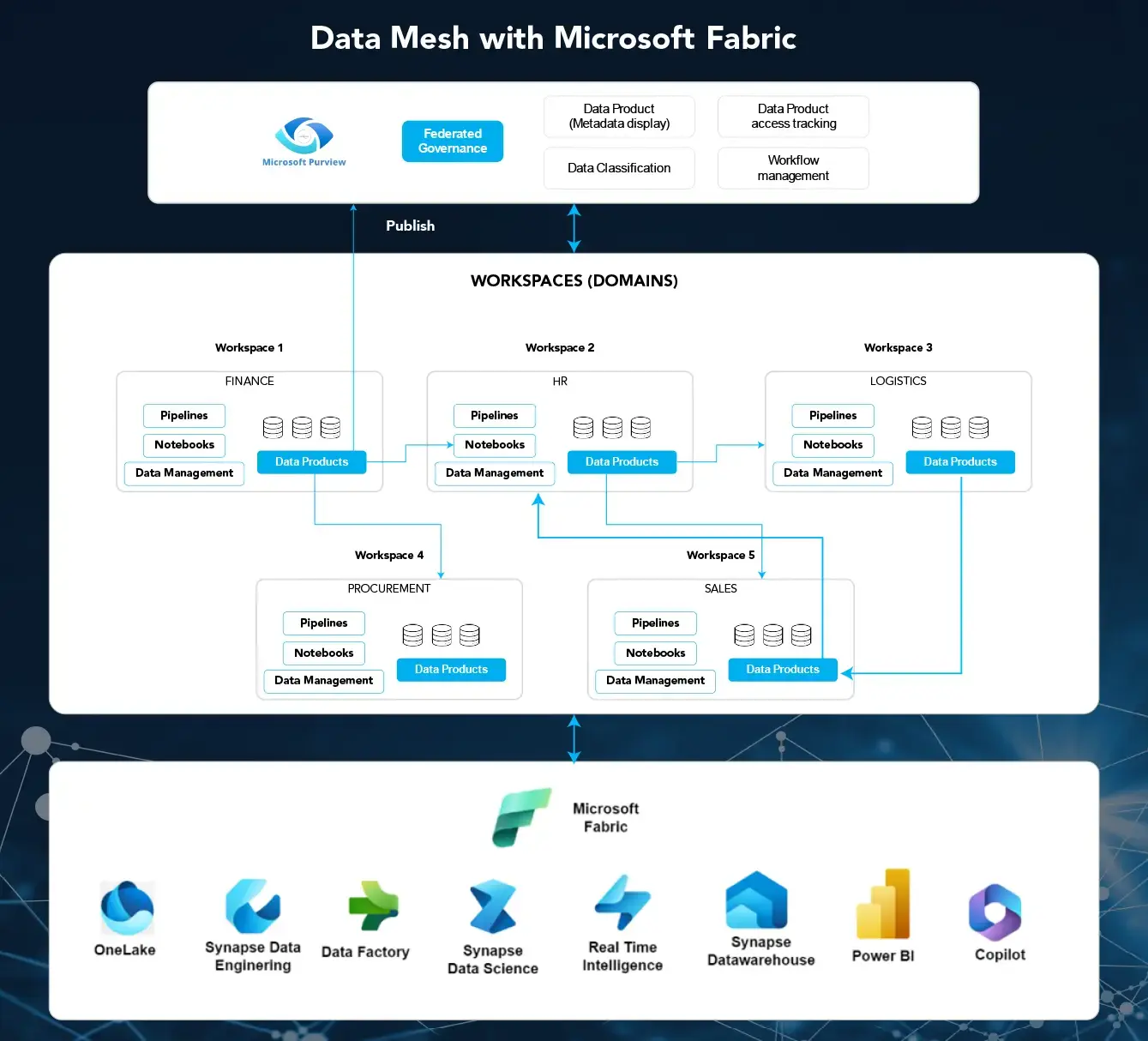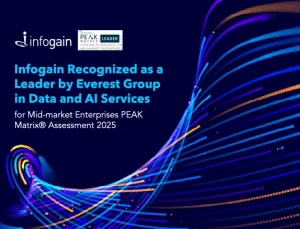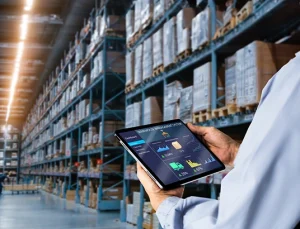- Posted on : June 27, 2024
-
- Industry : Corporate
- Tech Focus : Data & AI
- Type: Blog

While data offers immense potential to improve decision-making and innovation, it also presents significant challenges for organizations. Traditional centralized data platform approaches are inadequate for handling the complexities of modern enterprises, leading to issues such as data quality problems and lack of clear data ownership. Here's where the data mesh architecture emerges as a game-changer.
Data Mesh is an architectural framework that enables decentralized data ownership, domain-oriented data as a service, federated governance, higher data quality, and easier data sharing.
Organizations can achieve a scalable data mesh architecture by leveraging a unified data platform like Microsoft Fabric, unlocking the benefits of decentralized data ownership and improved data governance.

Image 1: Data Mesh with Microsoft Fabric
Microsoft Fabric supports multiple workspaces. Each workspace functions as a domain. Fabric extracts data from various sources and processes it using data engineering or machine learning services and stores it in OneLake. All data, pipelines, notebooks, etc, related to a domain can be grouped under a single workspace. Domains own their artifacts and define access controls, ensuring ownership for each specific domain. Fabric capacities (subsets of workspaces) can be created if data is scattered across different regions. This ensures regional data artifacts and helps ensure regulatory compliance.
Data products can be shared with other teams through shortcuts, ensuring shared data access without data duplication or reprocessing. Microsoft Fabric, in conjunction with Purview, provides a data product view for the entire organization. This facilitates Data as a Service (DaaS) by exposing data product metadata to other teams. Teams can view a list of data products available across different domains, request access, and easily consume and integrate the data they need. This eliminates the need to understand the underlying complexities of data storage and management. This enables workflows for requesting data product access, approval, and access management. This creates an auditable history for future reference. Additionally, Fabric with Purview maintains sensitive data classification and lineage, ensuring regulatory compliance.
As a SaaS platform, Microsoft Fabric empowers users with self-service provisioning of its various services, including OneLake data storage, data engineering tools, machine learning capabilities, real-time analytics, and visualizations. This eliminates bottlenecks associated with traditional IT models, allowing users to access and utilize the tools they need faster to gain insights from data.
Federated governance in Fabric is more flexible. Core governance policies are centrally maintained, while domain teams can define and control access and pipelines within their domain workspace based on specific needs. Each domain team is responsible for adhering to governance policies and ensuring their data products comply with the necessary compliance requirements. This federated governance model enables accountability, transparency, and compliance.
While Fabric offers an out-of-the-box data mesh implementation, iRAPID (Infogain's accelerator toolkit) streamlines implementation by facilitating the reuse of existing metadata-driven ingestion and data quality frameworks. Additionally, iRAPID can automate the migration process from Databricks to Fabric, which is particularly useful for migration scenarios.
In conclusion, as enterprises modernize their data landscape, data ownership, regulatory compliance, increased security, and agility become critical considerations. The Data Mesh framework empowers organizations to address these challenges. Microsoft Fabric facilitates Data Mesh implementation with ease, while Infogain's iRAPID toolkit further accelerates the process by facilitating framework reuse and migration automation.







